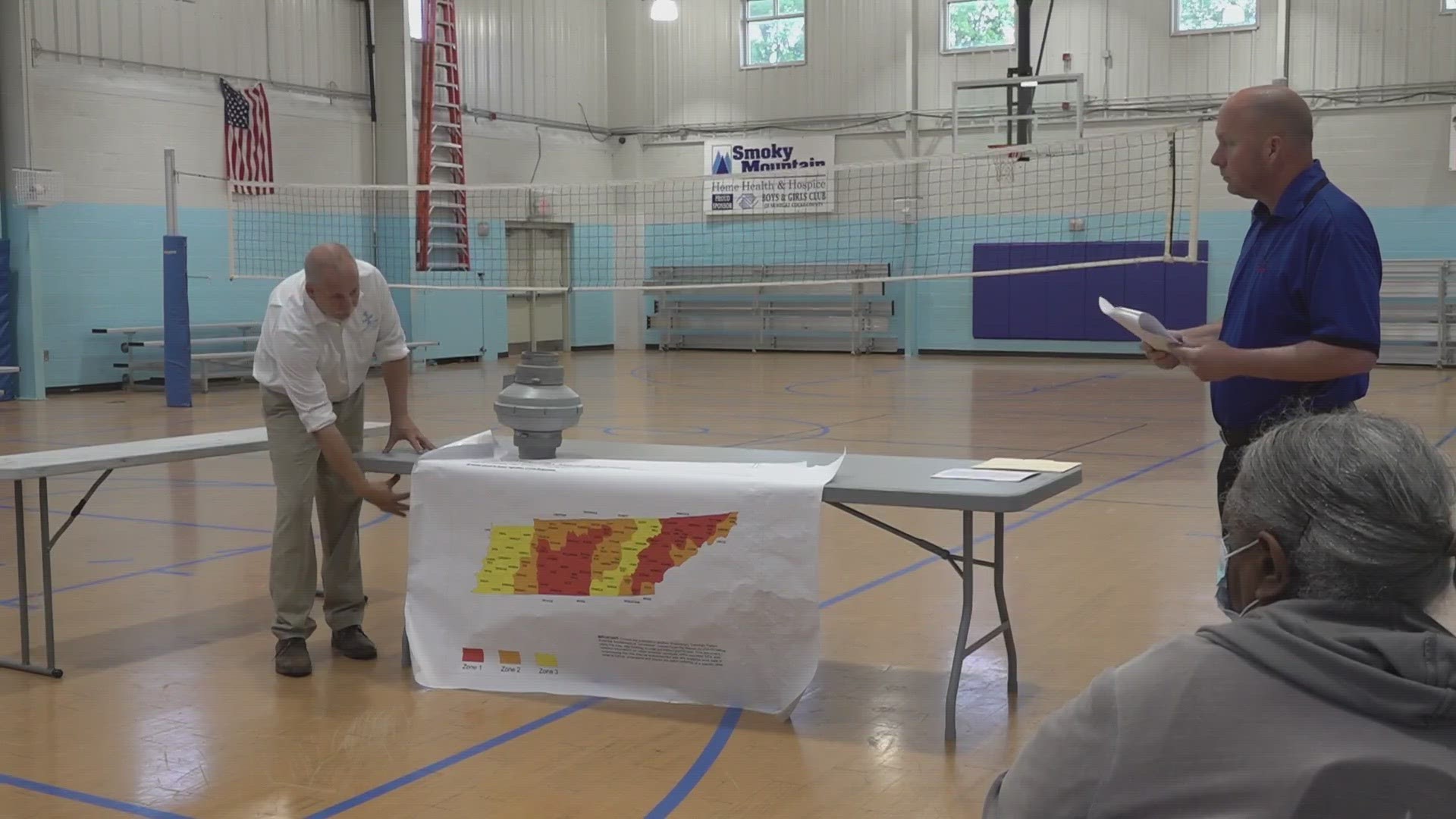NEWPORT, Tenn. — You can’t see it, you can’t smell it, but it might be inside your home.
“Radon is a gas that comes from the ground and can be trapped in your home, and has negative health effects,” said David Coffey, president of Radon1. “Radon is a second leading cause of lung cancer.”
The Newport Housing Authority warned dozens of residents about possible radon gas exposure. Last week, they sent more than 100 letters to residents who are facing this risk. They said they’ve been testing for radon in those units over the last year.
The company tested about 400 units – a little more than a quarter tested higher than the safe level.
Last week, they sent a letter to some residents that said, "During these tests, your unit was tested at or above 4.0 levels.” Now some people who live there are concerned because according to the Tennessee Department of Environment and Conservation, a 4.0 level equals smoking eight cigarettes per day.
“The average was probably between a four and a seven, with the highest that I remember seeing was an eight,” said Walter Cole, Executive director of Newport Housing Authority.
Yet, radon isn’t only in Tennessee. The U.S. Environmental Protection Agency (EPA) has created a map that shows the areas with the highest potential levels of this gas.
An industry that helps people find and address radon-related concerns is growing, Coffey said, because more and more people find out what radon is and test their homes.
"The industry is also in need of air quality professionals," Coffey said. "So, we are also looking to help our community through offering careers to people who want to help other people learn about how to test and lower levels of radon in their homes and businesses."
Newport Housing held three meetings on Wednesday and the executive director said the goal was to educate and inform people. But in one of the meetings, a resident said he didn’t get his questions covered.
“I wanted to know what level that the radon was in my unit,” said Don Hauser. “The other question was, how long has it been like this? And what they're going to do to fix the issue?”
The Housing Authority said they’ll install equipment to remove the gas from housing units. The contractor said they want to have everything installed and finished by December this year. He said the mitigation system will be outside.
It’s about 400 units and the contractor who will install this system said it’s going to cost more than $200,000 for the installation. On average, it costs about $2,000 to install mitigation per unit.
“The families that are above a 4.0, that's going to require the mitigation system. They don't have to do nothing,” Cole from Housing Authority said. “We will just give them a notice that we're going to be coming to their house to install in these, this system.”
Still one of the biggest concerns from residents is whether living in their homes is safe right now. The state of Tennessee offers free at-home tests for anyone who wants to see if radon is present in their home.
Hauser said his son is living with his grandmother until he figures out if it’s safe to live there.
“My biggest fear is something happens to my child when he's older,” Hauser said.

